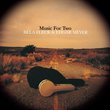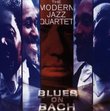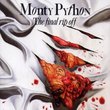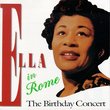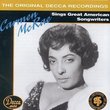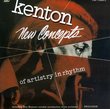| All Artists: Meredith Monk Title: Volcano Songs Members Wishing: 4 Total Copies: 0 Label: ECM Records Release Date: 3/11/1997 Genres: Pop, Classical Styles: Vocal Pop, Opera & Classical Vocal, Historical Periods, Baroque (c.1600-1750), Modern, 20th, & 21st Century Number of Discs: 1 SwapaCD Credits: 1 UPCs: 028945353920, 781182158924 |
Search - Meredith Monk :: Volcano Songs
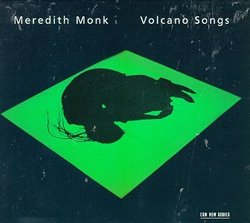 | Meredith Monk Volcano Songs Genres: Pop, Classical
|
Larger Image |
CD DetailsSimilarly Requested CDs
|
CD ReviewsExperimental minimalism Mr. Richard K. Weems | Fair Lawn, NJ USA | 09/04/2006 (4 out of 5 stars) "Often I find that a particular kind of facial expression goes with the mention of Meredith Monk.
I would be hard-put to describe that expression from others as `sour,' or in any other way resentful (assuming, of course, they know who she is), but perhaps more a look of recognition, of compliance almost, for as many people I have found who do not care for her, and as many as I have found are quite fond of her, she seems to demand respect. And why not? Who else can easily be named who exhibits such unique work? Who else creates music and vocal works that would take someone at all familiar with her only seconds to recognize it? Am I mostly to ask questions in talking about her latest release? Am I to keep to the form I have thus presented to the present moment--one sentence a paragraph? We'll see. The main question, I find, is this: How is it that Meredith Monk has persisted in the traditions of the experimental yet not faded to art history or another type of death? How is it that she continues as a fresh, alive presence in music? Those were two questions, weren't they? Meredith Monk's "American maverick tradition" continues with her latest release off ECM New Series, Volcano Songs. ("American maverick tradition" being, of course, her own term.) Other `mavericks' (by her own standards): John Cage, Henry Cowell, Harry Partch, Edgard Varèse. Another `maverick,' by my own: Gertrude Stein. Allow me to explain. Perhaps an understanding of Meredith Monk's work may be helped along with a discussion of Gertrude Stein, for the works of these two I find more integrally linked than Monk with the random compositions of Cage, the out-and-out destruction and rebuilding of tonal scale and instrumentation of Partch, the 4th dimensional music of Varèse, the recapitulation of American folk music into classical tradition of Cowell. Granted, there are startling similarities inside them all (in ways I am not bothering to note here), but I find that Monk and Stein orbit around the same American sphere, a sphere of American influence that to this day is debated and debunked. The sphere of American language. We Americans have always been castigated for our language. Yes, `our' language. We are accused of not speaking proper English. When we want to add words like `grunge' and `nerd' to such tomes as the Oxford English Dictionary, Harvard linguists shake their heads mournfully. When others find their own forms of language (i.e., ebonics), we get outraged that this is not an official language, and thus we want to name our own. We hold language before us, as if it were the universal way of expressing ourselves, a common denominator. The point is--we all speak the same language, yet we don't understand each other. Watch any talk show--you'll see my point. What does this have to do with Meredith Monk? Could I say quite simply at this point that Meredith Monk does not hold the language before her as a banner, as something she must mold her ideas to, but behind her, as a tool to bend and shape and mold and crucify and desecrate and love to fit the concepts she is to express? Would that make any sense at this point? What about Gertrude Stein? Have I even really talked about Gertrude Stein? Is the English language even used in Meredith Monk's works? It can be hard to tell at times. In "Walking Song," the first of her duets labeled as "Volcano Songs" (1993), we hear a lot of controlled breathing, a lot of swoops in the voices of the two singers, reminiscent almost of sashaying arms, a body bobbing up and down to the rhythm of a power walk, but is there a libretto? In other words: are there words? Listen more carefully--the swoops are o's, the bobs are hi's, back to the o's. Ohio. `Ohio?' we may ask. `Walking in Ohio? `Is that what the song is about?' My response: No. Ohio has nothing to do with this song. Ohio has everything to do with this song. What the hell is Ohio doing in there, anyway? Musically, you could say Ohio is like the notes in Philip Glass, or Steve Reich. The point there is not the notes. The point is the rhythm of the notes. In Glass and Reich, the notes do not vary much--they repeat. Thus, minimalism. The point is the configurations those notes get into, the patterns, how those patterns change, how they relate to each other. Thus, Ohio has nothing to do with "Walking Song." The point has to do with the breaths, the singers, the swoops and bobs. Ohio is not a state in "Walking Song." Ohio is a sound, a pleasing sound if you will let go of it and let the singers do with it what they are doing. One of those singers, by the way, being Meredith herself. The same goes for Gertrude Stein. Listen to this: Lena was very sick on the voyage. She thought surely before it was over that she would die. She was so sick she could not even wish that she had not started. She could not eat, she could not moan, she was just blank and scared, and sure that every minute she would die. She could not hold herself in, nor help herself in trouble. She just staid where she had been put, pale, and scared, and weak, and sick, and sure that she was going to die. --Gertrude Stein, "The Gentle Lena" How many times needed you hear that Lena knew she was going to die? How many and's are truly needed in this passage? By others' terms, we surely don't `need' all that repetition. But listen to it. Really listen to it... ...and you will hear that every time it happens it is perfect, needed, necessary. Same goes for Meredith Monk. Ohio means nothing in "Walking Song" but how it sounds. Could other words have been used in "Walking Song"? Of course: she could have used antelope, blueberry. She could have used Gertrude Stein. She could have used no words at all--`fleg,' `huggumph' and the like. She used Ohio--that's all that matters. This is why she exacts such a sour note in many ears: she requires you to listen anew to her work, to put aside what words `mean,' what notes need to happen in what places, what we are used to. But if you listen, you can get along, get used to, accept. This step is yours. Any form is adjustable, if you are willing to work with it. What happened to my questions? Does this form I've been using still annoy you? Or have you gotten used to it somewhat? Maybe, sometimes, it has surprised you. Like when the paragraph wasn't quite a sentence, or when it went incomplete into another paragraph. Maybe you actually expected it, because maybe you thought, "He can't keep too rigid to this form. He has to experiment with it a little to keep it interesting." I think you're right. The making of this essay was a process. I tried some things, went back and took some things out, changed things around, sometimes changed order to see how things looked. This is what I like best about Meredith Monk--her process. Her releases are more like compilations--different things she's experimented with over the years, her experiments. Her pieces are labeled by year--not so much, for me, to chart her progress, but to show that these pieces were not all in one string, that she is still at work, trying things out. In "The Tale," off Dolmen Music, all she does is laugh. She laughs rhythmically, but indeed, all it is is laughter. One day, I was listening to her opera Atlas while playing a board game with my eldest brother; suddenly, after a lot of nonsensical hey-yo's and ya's an such (I think even an occasional watta), a voice struck out, as clear as anything: "I own my own equipment." "What?" my brother asked. "He said he owns his own equipment," I responded. My brother shook his head. In "Turtle Dreams," Meredith has a long sequence of variations on the line, "I went to the store." Oddly enough, I did not really think about this until I sat down to write this essay. Why worry about it? Every time I listen to "Three Heavens and Hells" (1992) off Volcano Songs, I always seem to lose when the singers explain the third heaven and hell. The first is People Heaven and Hell. The second is Animal Heaven and Hell. Somehow, by that point, I'm not listening for the third. There's far more at stake by then. " |

 Track Listings (14) - Disc #1
Track Listings (14) - Disc #1

